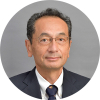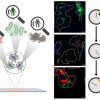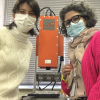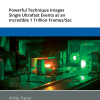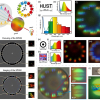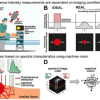
Nanyang Technological University, Singapore (NTU Singapore) has launched the Institute for Digital Molecular Analytics and Science (IDMxS), which aims to advance the science behind analysing biomolecules through the use of information technology and data science. This could pave the way for instantaneous monitoring and analysis of health or environmental information, much like how we access real-time traffic information on our mobile phones.
IDMxS, NTU’s newest national Research Centre of Excellence (RCE), is supported with a total investment of around S$160 million over 10 years, comprising S$94 million from the Singapore Ministry of Education, with the remainder from NTU and National University of Singapore.
At the heart of the work done at IDMxS is digital molecular analytics, a new field that drills down to the level of a single molecule to detect, identify and quantify biomolecules with unprecedented precision. Such a science will enable many branches of new discovery, including the development of diagnostic testing capabilities that could in turn lead to new technology development and spin-off commercial applications, such as blood testing kits that can produce immediate results using nothing more than a smartphone camera.
The IDMxS, hosted at NTU’s Experimental Medicine Building, was officially launched by Singapore’s Minister for Education, Mr Chan Chun Sing. Mr Chan said: “As the latest Research Centre of Excellence awarded by the Ministry of Education to NTU, IDMxS is a vital addition to the national Research, Innovation and Enterprise (RIE) efforts in supporting cutting-edge research that contribute to Singapore’s long term developmental goals. The science done at the Centre will be instrumental in bridging the gap between biomedical sciences and information technology, and I look forward to IDMxS’ future breakthroughs.”
The Research, Innovation and Enterprise (RIE) plan lays the groundwork for Singapore’s science and technology efforts every five years. RIE2025 was launched with a S$25 billion budget for 2021 to 2025.
NTU Acting President and Provost Professor Ling San said: “The Institute for Digital Molecular Analytics and Science (IDMxS) is the third Research Centre of Excellence hosted by NTU and affirms the University’s commitment to be at the forefront of cutting-edge research. IDMxS brings together world-class researchers and leading experts in the nascent field of digital molecular analytics, which will drive a paradigm shift in molecular detection and analysis and lay the groundwork for dramatic change in various fields such as biomedicine, biotechnology and clinical science. Another important objective of IDMxS is to nurture postgraduate students in interdisciplinary education across the molecular sciences and information technology, as well as to develop continuing education programmes to uplift the expertise of our healthcare workers in the area of digital diagnostics.”
NTU Senior Vice President (Research) Professor Lam Khin Yong said: “The Institute for Digital and Molecular Analytics and Science (IDMxS) is an example of how world-leading researchers of diverse disciplines at NTU are coming together to pursue fundamental research and advance their disciplines to new boundaries. This is in line with RIE2025’s aim to build up foundational research capabilities in Singapore to form a strong base of knowledge and capabilities for transformative innovations.”
IDMxS is led by Founding Director Professor Jay T. Groves, President’s Chair in Bioanalytical Sciences at the NTU School of Materials Science and Engineering. Joining him is Co-Director Professor Peter Török from the NTU School of Physical and Mathematical Sciences, who will oversee the centre’s facilities and capabilities. The interdisciplinary centre is expected to bring together 100 full-time researchers and staff with expertise in areas spanning the gamut of science and engineering, from biology, medical technology and chemistry to optics, computer science and artificial intelligence (AI). The Centre will provide funding for more than 30 PhD students, four of whom have already started their studies.




